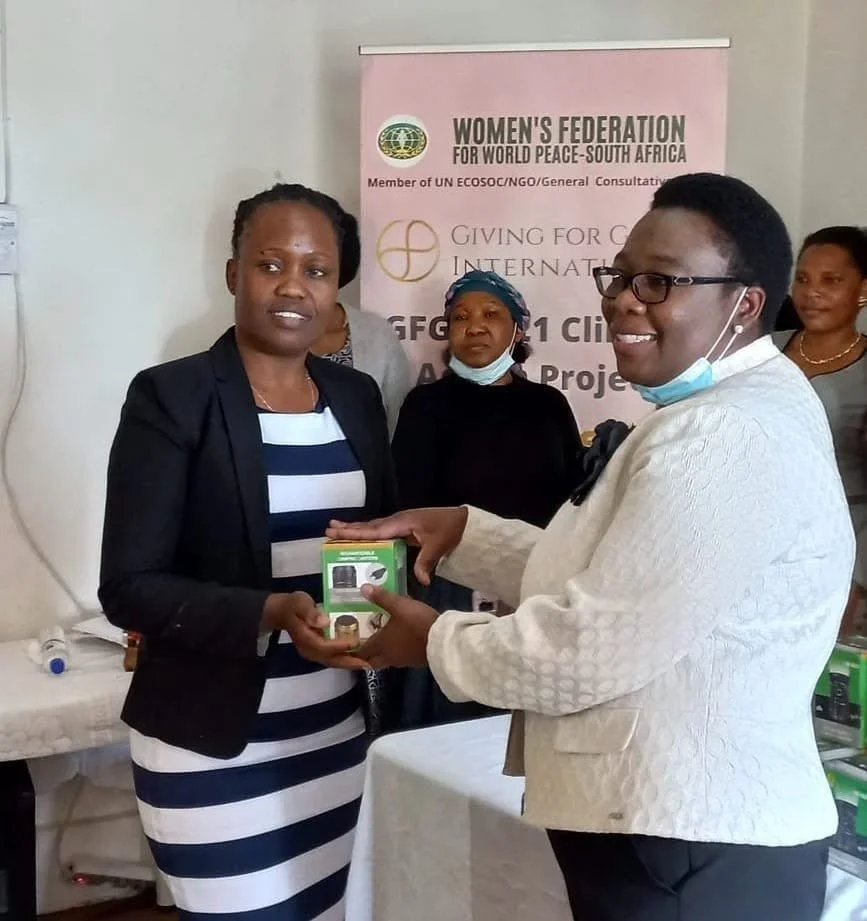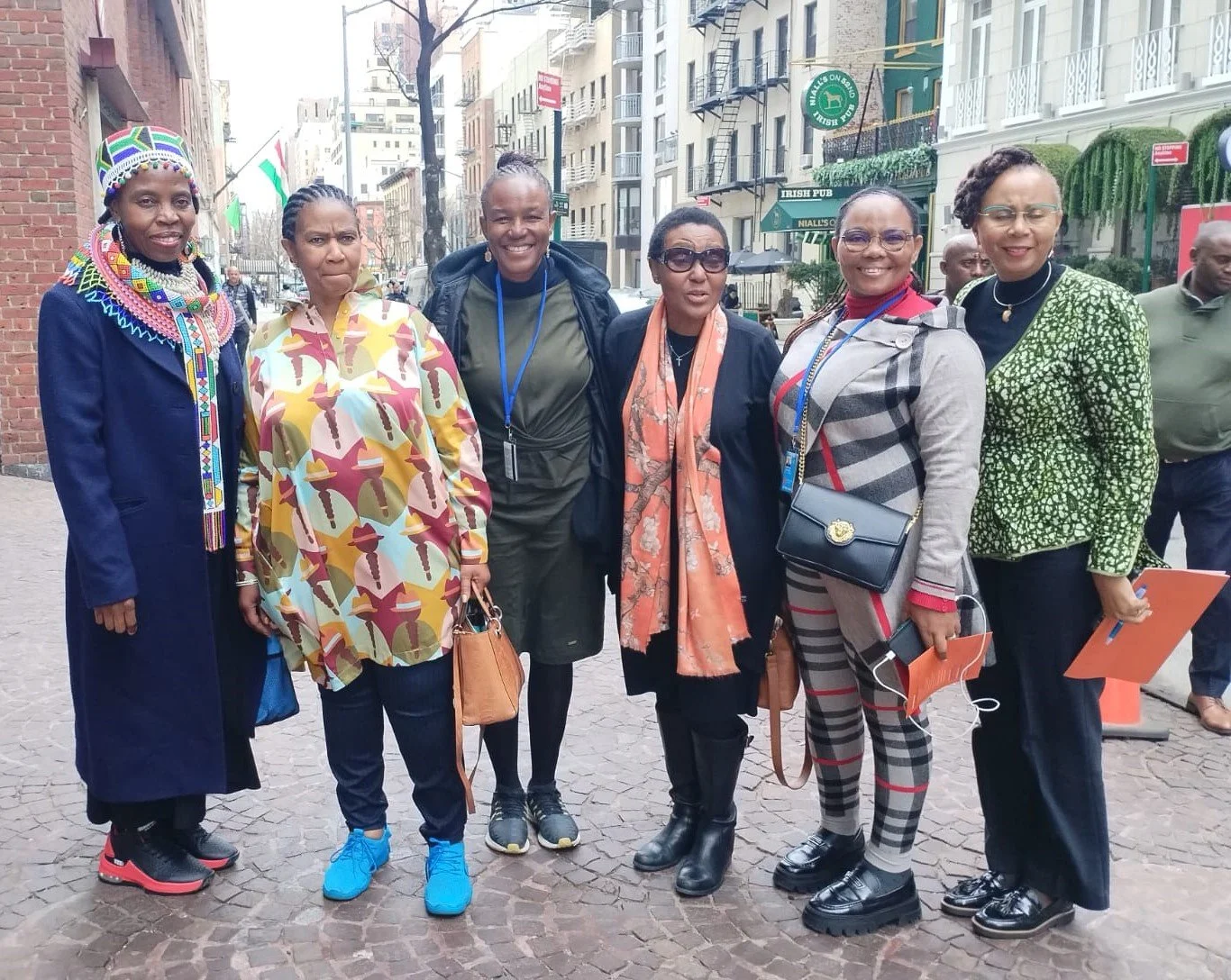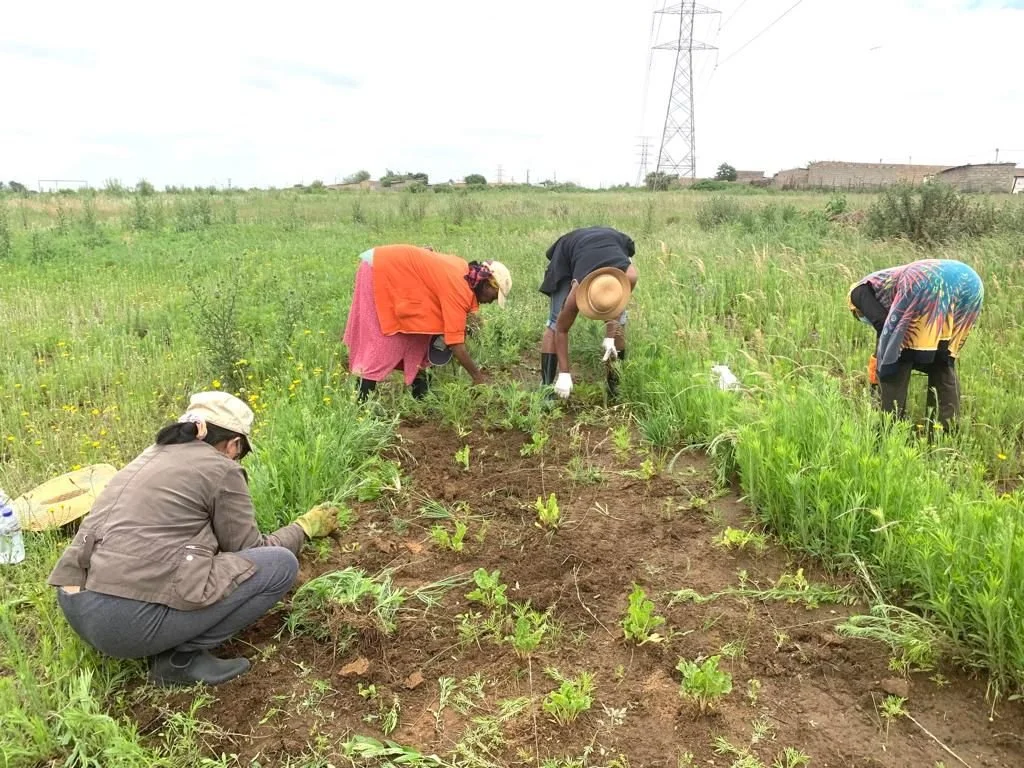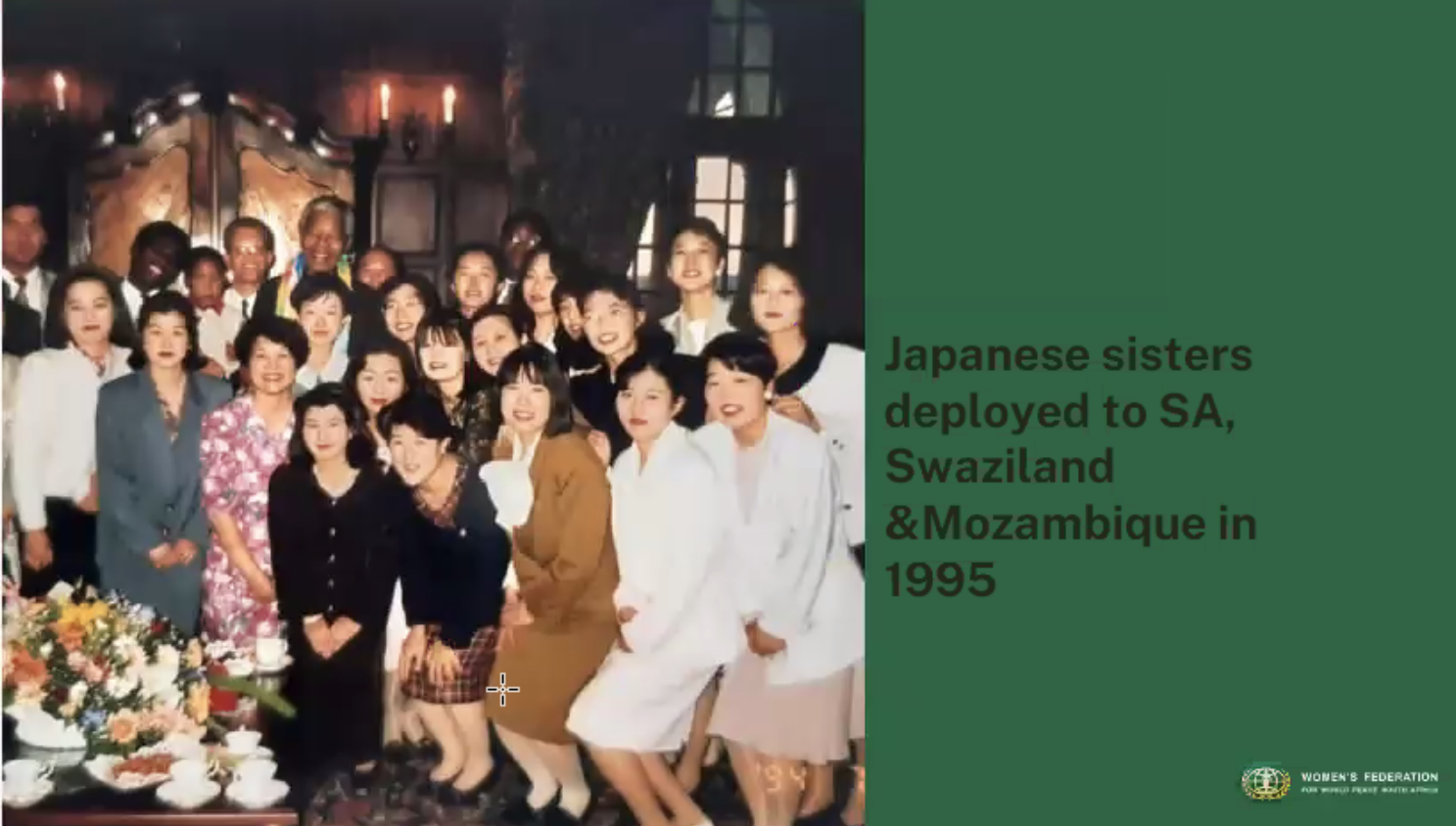WFWP South Africa Sustains Life-changing Projects
By Mion Tsuchiaka
The South Africa chapter of WFWPI shared its transformative community work during the online session of the “Connecting with WFWP Leaders Around the World” series on May 30, 2025.
Gwendoline Tshimbana, President of WFWP South Africa, shared a moving and insightful presentation titled “WFWP South Africa: A Journey Through Time.”
She spoke and reflected on the evolution of WFWP South Africa from its founding in 1995 by Japanese volunteers to its current grassroots impact across communities. She honored the early pioneers who laid the foundation, including Parliamentarian D Hounkpatin, Mrs. Maseko, and Mrs. Mailula, each of whom played a vital role in building the movement over the years.
Since assuming leadership in 2021, Gwendoline has worked closely with a dedicated team of women across three provinces: Gauteng, Limpopo, and the Western Cape. Despite the challenges posed by frequent leadership transitions, she expressed gratitude for the strong sense of unity and teamwork among members.
Through the support of WFWP International, with funding from WFWP Korea and the Giving for Good initiative, WFWP South Africa has launched several impactful initiatives aligned with the UN Sustainable Development Goals.
One of the first major projects was the distribution of solar lamps in Soweto, a community where many children lacked access to electricity during the COVID-19 lockdowns. The solar lamps enabled the children to continue their education at home.
Another important project was the cloth nappy sewing initiative in Limpopo, created in collaboration with local women and a royal family. This program promoted sustainable alternatives to disposable diapers that revived an Earth-friendly practice once widely used by previous generations.
In the area of education, WFWP South Africa implemented a literacy and numeracy program in partnership with a school in Soweto. Nearly 1,000 books were distributed through the generous support of Change X and the Legal Foundation. The team also introduced children to sustainability and nutrition through a school gardening initiative. This hands-on project invited students to plant vegetables and fruit trees, teaching them about the environment and empowering them with practical knowledge on growing their own food.
In 2024, WFWP South Africa also launched the Global Women’s Peace Network with a successful event that included a Bridge of Peace ceremony and a symbolic tree planting. The tree honored the historic women’s march of 1956 in South Africa and connected today’s peace efforts to the legacy of women’s activism.
Tsimbana thanked the elders, pioneers, team members, and international supporters who have shaped and sustained the movement in South Africa. “With our collaborative efforts, there is hope for a better future with our young leaders,” she said.
Session with ladies from Apostolic Christian Council of Zimbabwe Women Group.
Gwendoline Tsambana (left-most) with civil society leaders at CSW68 New York.
South African youth tending a vegetable garden.





